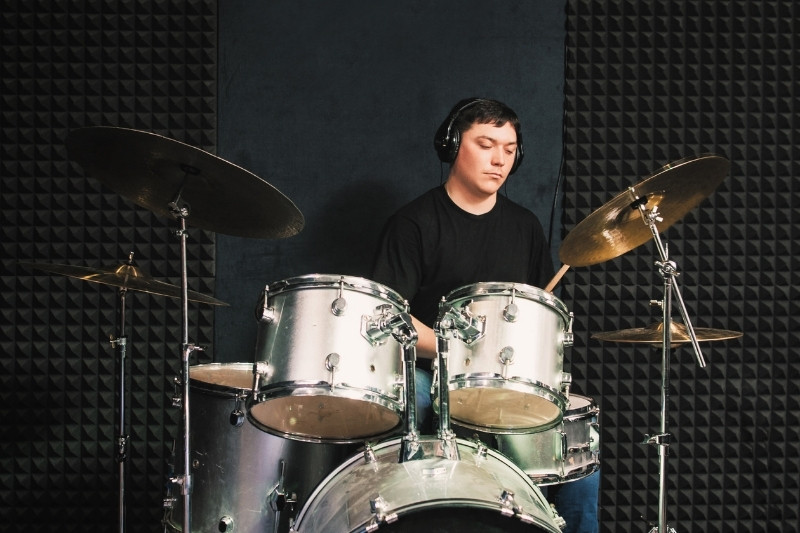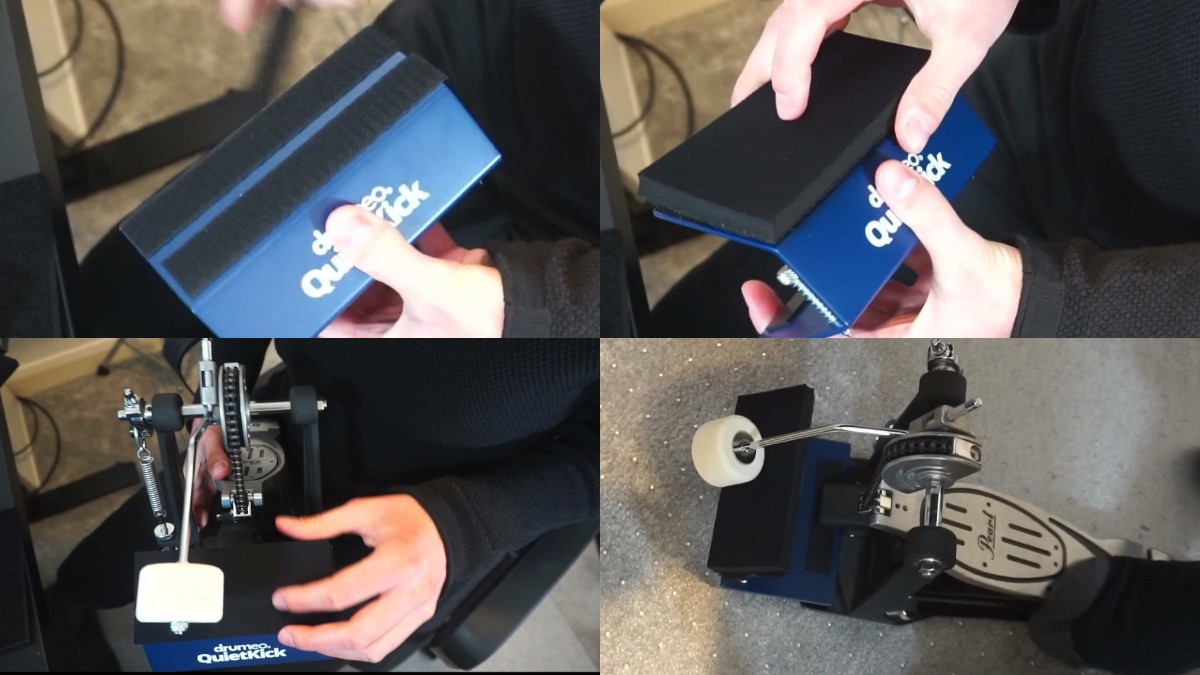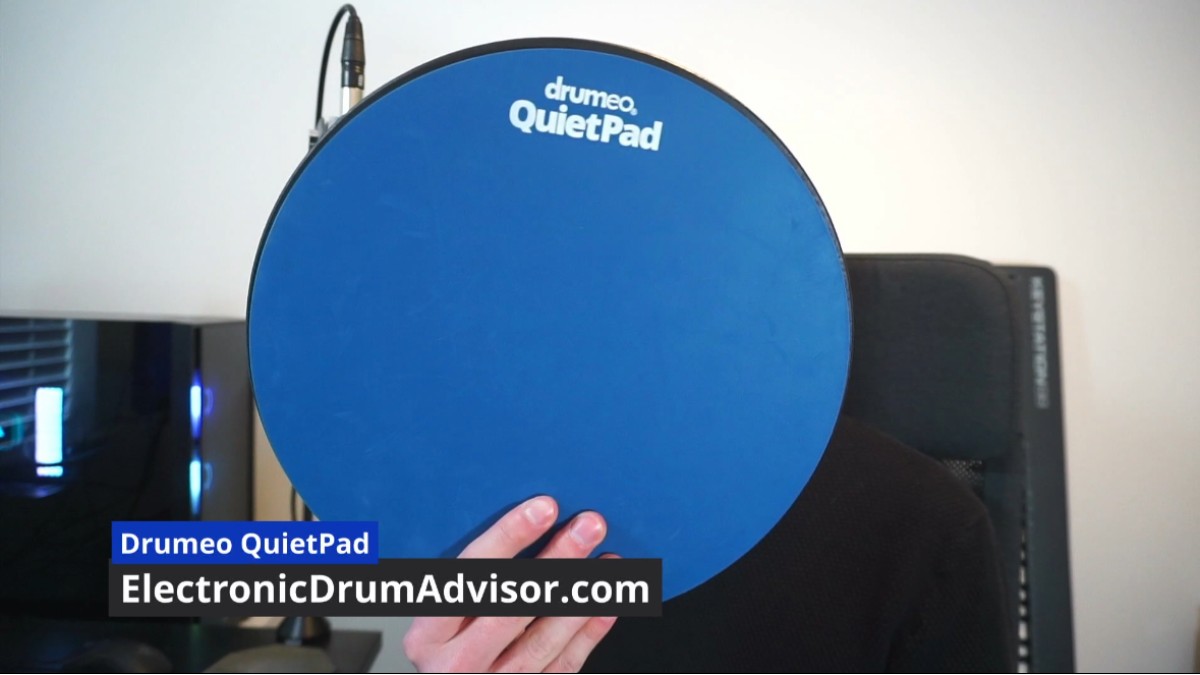Why Do Drummers Wear Headphones?

Drummers need to wear headphones for a host of reasons. These include protecting their ears, listening to the music or click tracks, hearing other band members better, and live recording.
You’ll often find drummers wearing headphones or in-ear monitors in the studio and while playing live. While it may make sense in a recording setting, it can seem a little confusing during a performance, particularly to those who don’t play music.
- One of the fundamental reasons why drummers wear headphones is to protect their hearing. Tinnitus is a real issue as drums are extremely loud and can lead to hearing impairment.
- Headphones also serve as personalized monitors for drummers. Drummers can get detailed monitoring of each instrument as well as monitor their dynamics while playing.
- Playing along to click tracks and backing tracks is another popular reason. Whether it’s practicing with drum-less backing tracks or using a click track for live performances, headphones are the way to go.
- Noise isolation is also a key reason. Live performances can be hectic on stage and headphones tune out surrounding noise so drummers can focus better.
- Lastly, headphones are great for communicating on-stage instructions. This is usually done in a musical, orchestral, or other big band setting.
- An alternative to headphones is In-ear monitors (IEMs), especially custom-made IEMs as they offer a custom seal with great noise-isolation levels.
Contents
- 1. To play along a click track
- 2. Personalized monitoring
- 3. To protect their hearing
- 4. To listen to a backing track
- 5. To monitor dynamics
- 6. Communicate on-stage instructions
- 7. Staying on top of the headphone mix
- 8. To tune out external noise
- What’s the difference between In-Ear Monitors and Headphones?
- Good headphones and IEMs for drummers
- Conclusion
1. To play along a click track
When a band is recording in a studio or playing on stage, everyone must stay in sync. A good indicator of a great band is how tight they sound.
But since it’s hard to keep track of where everyone is in the music, drummers use a metronome or a click track to stay on beat. This is true for all musicians. But it is especially essential for drummers as their whole job is to set the tempo and provide a rhythmic foundation for the band.
Another reason why drummers sometimes need a click track on stage is that apart from music, they also have to stay in sync with the lights and video elements. If they go offbeat, it can ruin the experience for everyone.
2. Personalized monitoring
If you have played in a band, you know that coordination is key to a great performance. This goes regardless of whether you are playing on stage or in your garage. And if the musical setting is that of rock or metal, it can get loud. Each instrument overwhelms the other, which makes it hard for the bandmates to hear the music.
In this case, headphones come to the rescue and provide the drummer with a detailed monitoring level with enough noise isolation to correctly hear everything he/she needs to hear.
3. To protect their hearing
If you’ve never realized this, drums can be extremely loud. And drummers are at the epicenter of the roof-shattering sound drums produce.
While drumming is fun, it also makes drummers susceptible to hearing damage in the form of tinnitus or even permanent hearing loss. In other words, deafness. Even if you aren’t a musician, you need working ears. Now imagine how important hearing would be to those whose livelihood depends on it. To prevent the worst-case scenario, both professional and home drummers need to wear noise-reducing headphones or IEMs (in-ear monitors).
A lot of good noise-canceling headphones block external noise by 15 to 30 dB. This is great for drummers as not only can they focus on their instrument but also prolong their ear health significantly.
4. To listen to a backing track
Practicing drums can be a bit tedious from time to time. And I don’t mean to offend drummers. It’s just that drums aren’t the most melodic instruments. So, a lot of drummers practice songs or drumless tracks. To be able to hear it, they need a good pair of headphones that will tune out the external noise, i.e. good noise isolation level.
On top of this, during live performances, bands can often lose track of the song. To prevent this, they use a pre-recorded backing track. This not only helps them perform better but even enables things like improv and solos. They can also pre-record additional instruments, add effects, etc.
5. To monitor dynamics
A secret behind how good a song’s production is, both recorded and live, is the dynamics between each instrument. And sure, talented sound engineers are working on making sure that the music sounds great in either setting. But sound engineers work based on cues from musicians.
Drummers need headphones to get an idea of how they are sounding. Based on the feedback, they can turn the volume of their playing up and down. Also, by doing this, the sound engineers have an easier time monitoring the sound levels of the whole band.
Thanks to this, the guitarist, bassist, and singer aren’t taken aback by the drummer.
6. Communicate on-stage instructions
This usually happens in a musical, orchestral, or big band setting rather than rock, where you have a conductor giving cues to the whole arrangement. Drummers are usually hidden behind a wall of glass or other musicians which makes it hard for them to see the conductor.
Headphones, in this scenario, help them be in tune with the rest of the band. Drummers can easily navigate through the on-stage chaos and know what the conductor is trying to communicate, thanks to headphones or in-ear monitors.
7. Staying on top of the headphone mix
I guess this point is an extension to monitoring dynamics. As the world has gone digital, most people these days listen to music on their headphones and earbuds, which is slightly different from listening to music on speakers and turntables. So, you have to make sure that your music caters to all segments.
The best way to do this is by listening to your own music on headphones first and observing how it sounds. Only when drummers and other musicians do this, can they go back to production and work on mastering or mixing their sound appropriately.
8. To tune out external noise
In addition to being noise canceling, top-tier headphones are great at reducing noise. This includes stage and studio noise.
Since external noise can be distracting during a musical performance, along with being damaging to the ears, it makes sense for drummers to use headphones. Through this, drummers can not only protect their ears but have a better time focusing on their instrument, thus making for a better, more fruitful session.
What’s the difference between In-Ear Monitors and Headphones?
Now that you know the importance of headphones in a drummer’s life, you might also be curious about the difference between headphones and IEMs.
Headphones go over the top of your head and cover the entirety of your ears. They are more comfortable and better for your ear’s health, particularly over prolonged usage.
In-ear monitors go into your ear. They tend to have slightly better sound isolation as there is very little room for the sound to enter your ears. But if they aren’t the right size, they can hurt your ears. That is why custom IEMs exist.
That said, each drummer has their preference. Both headphones and IEMs are a musician’s aid. They both have comparable prices and sound quality.
Good headphones and IEMs for drummers
If you’re a drummer or planning to become one, it will be better for you to know what are the top headphones and IEMs available in the market today. And trust me, there are a plethora of options for both of them.
For headphones, some excellent options are Beyerdynamic, Sennheiser, Vic Firth (yes, the stick company has studio headphones), Neumann, AKG, and Audio-Technica. These brands are considered industry standards, boasting multiple products that can cost you anywhere between $50 to upwards of $500.
On the other hand, in-ear monitors have comparatively fewer options. They are available at two levels, universal, and custom. Universal IEMs are generally on the cheaper side, costing as low as $40 to $50. You can find good universal IEMs at Massdrop, Tin, and Shure.
On the other hand, custom IEMs can get pretty expensive, ranging between $200 and $1000 (or way more). Custom fits are set specifically to your ear and are equipped with trending technology, making them great for pro use. Some top brands for custom IEMs are Ultimate Ears, Shozy, and AAW.
Conclusion
Making and listening to music is the bread and butter of a drummer and all musicians. The job of headphones or IEM is to enhance that experience.
By protecting their hearing, isolating noise pollution, and letting them hear what they sound like, these accessories can take a drummer’s game to the next level and ensure that it stays so for a long period of time.
So, the next time you see a drummer wearing headphones while performing, you won’t be baffled by it. Instead, you will know that they take their art seriously.







